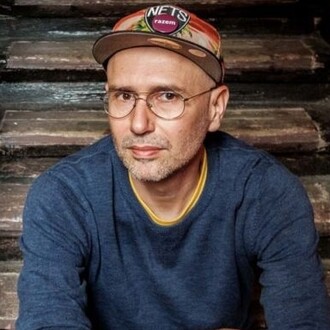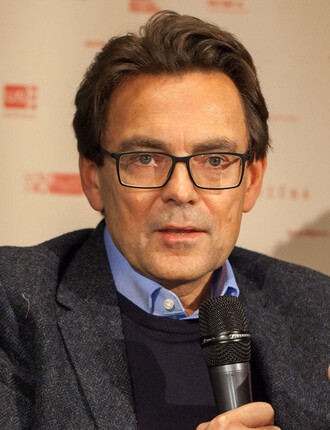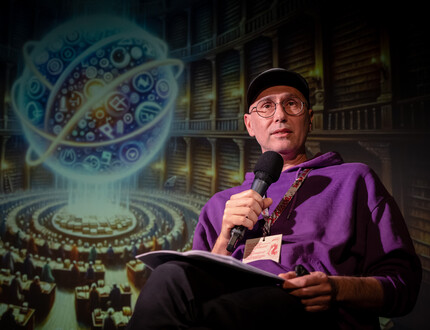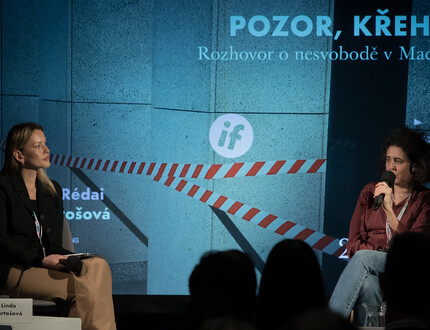Those of us who are old enough to have lived through it remember that sentiment quite well: there was widespread euphoria following the fall of the Soviet bloc in the early 1990s. Despite the hardship and uncertainty it brought, there was also a widely felt hope and joy at the systemic change that had seemed close to impossible even several years earlier. That feeling was shared between the East and the West. American philosopher Francis Fukuyama judged that event so important that he even claimed we had lived through the end of history. Fukuyama believed the so-called “communist bloc” presented the last and only practically existing alternative to the liberal order, that is, the combination of the free market, individual freedoms, and parliamentary representation. Thus, he regarded the fall of the Soviet Union and its entire bloc as empirical proof of the ultimate value and strength of liberalism, which seemed to him to have no real alternatives. He prophesied the future would follow one inevitable path of the worldwide spread of the liberal order.
Today, it seems naive to believe that, as we have seen at least two widespread and systemic alternatives to liberalism that have gained traction in various parts of the world in the last two decades: religious fundamentalism and conservative right-wing populism. Even Fukuyama realized his mistake to a certain extent and backtracked on his original thesis. However, at that time, in the early 1990s, most commentators, especially in the mainstream public debate, seemed to have agreed with him. Not all did, and there were also different voices painting a less optimistic and more somber picture. One of them was the prominent French philosopher Alain Badiou. In 1991, he published a short book called D’un désastre obscur, devoted to the collapse of so-called communism in the Soviet Bloc. In his eyes, “the political crisis that this collapse bears witness to is a crisis in the West just as much as in the East”. According to Badiou, the triumph of capitalism should not be interpreted as a victory of freedom and emancipation. On the contrary:
It is precisely here where the obscurity and the difficulty of the moment resides: the fact that the that the Stalinist mode of politics was saturated and moribund – these are all excellent things […]. But instead of opening the path to an eventuality from which the deployment of another mode of politics would proceed, another singular figure of emancipation […], this collapse occurs under the aegis of the “democracy” of imperial owners. That the supreme political adviser of the situation is Bush; that the desire flaunted is that of inequality and ownership, that the measure of all things is the IMF, that “thought” is only the vain reassessment of the most basic and most convenient opinions. If this were really to be the course of things, what a melancholy.
So, it's clear that Badiou's melancholy did not originate from any sort of nostalgia for the past or admiration for the Soviet Union. It was rather his critical view of the present and the future that made him skeptical of the alleged triumph of freedom and progress in the early 1990s.

Looking from today’s perspective, we can better see not only the pertinence of Badiou's position but also the more detailed social and political landscape shaped by the “obscure disaster” he discussed thirty years ago. Interestingly enough, it was not a random, contingent disaster but, as Badiou claimed, one intimately linked with the mode of transformation undertaken after 1989 in the former Soviet Bloc. Inequality and privatization mentioned by Badiou were accompanied in the early 1990s by a less visible, yet immensely impactful process: the destruction of the commons. What's even worse is that this devastation occurred simultaneously at both the material and symbolic levels. The material aspect took the form of parallel dismantling of public property through privatization and the erosion of the welfare state via austerity politics. This occurred at varying paces throughout the bloc – with Poland being one of the most radical examples, while Czechoslovakia, splitting into two separate states in 1993, adopted a somewhat more conservative approach. However, the general direction and nature of the process were consistent across the entire post-Soviet world. The devastation of the symbolic commons occurred through the erosion of two patterns of collective identification that played a progressive role in history for almost the past two centuries: those of class and trade union. In fact, in our part of the world, it was the combination of the parallel destruction of the material and symbolic commons that yielded the bitter fruit of populist reaction. I will return to this point later, but first, let me reflect for a moment on the role and significance of the common in the human world.
Deeply interpellated by liberal ideology, we tend to view our everyday functioning through the lens of individual subjectivity, which distorts the actual state of affairs. Life – every life, whether human or any other animal species – is deeply rooted in the material commons. An obvious and fundamental example is our collective dependence on natural commons: air, water, soil, climate, and the pool of genes we share not only among us, humans, but also with essentially all living matter. According to the evolutionary concept of universal common ancestry – also known as common descent – all living organisms on Earth share a common origin, meaning they have all developed from a single pool of ancestral life forms. This suggests that, at a genetic level, there is a degree of shared ancestry among all living beings.
In the age of the pervasive climate crisis, the importance of natural commons needs little elaboration, I believe. Obviously, there's a problem that economist Elinor Ostrom describes as “the tragedy of the commons.” However, what's not so often mentioned is that in her investigations, she also proposed several solutions to this dilemma. They all boil down to some form of collective management of the commons. Privatization of these resources leads to a fundamental breakdown and wreaks havoc on communities that permit it.
Nature is just the paradigmatic example, but it's not the only aspect of the material commons we depend on. In modern societies, these commons are found all around us: public infrastructure, public services, and public institutions all play a vital role in our lives. The example of the United States attests to the importance of the material commons and to the perils resulting from a lack thereof. Despite being the richest country in the world, the U.S. lags behind in providing fundamental services to its population, such as reliable transport infrastructure, drinking water, healthcare, or security, largely due to its reliance on predominantly private solutions.
Now, the other kind of commons, the symbolic one, is more elusive to grasp, yet equally important and impactful. Our cognitive access to the symbolic sphere is possible only through abstract concepts, as opposed to the concrete experience of the material. However, the symbolic commons play an equally constitutive role in our world. Two paradigmatic examples are language and scientific knowledge. Both depend on our collective actions and function best when operating in the mode of the common. Any privatization would radically hinder them. Imagine if words had a “TM” sign attached, and you could only use them if you paid a fee to their “owners”. Consider, for instance, if a term like “deconstruction” wasn't coined by disinterested philosophers like Jacques Derrida and Paul de Man for the sake of advancing common knowledge, but by profit-driven corporations that would confine them within intellectual property laws. Such a move would render them simply inoperative. Imagine if the inventors of linear perspective charged anyone who wanted to use it in painting. Many masterpieces would never have been created. Or envision Newton demanding a fee from anyone who used or adapted his formulas. Einstein's theory of relativity would have been considered an illegal derivative work since it directly uses these formulas; Einstein himself might be persecuted by a capitalist equivalent of the Holy Inquisition, and his work would be condemned as a violation of property rights.
However, the aspect of the symbolic commons that is most politically operative is that of collective identification. Contrary to the basic assumptions of liberalism, we cannot sensibly conceive of a human subject as a fundamentally singular being, determined primarily by its detachment from other humans. We become subjects because we participate in the common sphere of symbolic exchange that we term “culture.” A subject is born through socialization within a community – firstly through primary socialization within our closest family circles, and secondly within peer groups. The subject cannot be described as logically or historically prior to socialization – there is no individual subject that exists before socialization occurs. Rather, the subject is a product of socialization, a debt we owe to the symbolic order and a result thereof. For this reason, we cannot function without a foundational reference to the realm of common symbolic identification. This realm is not only responsible for defining who we are, but more crucially, for the very fact that we exist at all.
Collective symbolic identifications have played a pivotal role in shaping the modern world, as it stems from struggles conducted within the realm of these identifications. Social movements crucial for the evolution of modern societies towards an inclusive community of equal citizens – namely the labor and feminist movements – operated through collective identifications: the shared experience of a worker in a capitalist system, a woman in a patriarchal society, or a disenfranchised proletarian in a bourgeois political system. The rise of neoliberalism in the early 1990s both conceptually disrupted and practically dismantled these identities. The term “class” vanished from social sciences and public discourse during the 1990s. Trade unions, which provided a communal platform for workers’ advocacy, were aggressively targeted and weakened. As a side note, in the Polish context, this was particularly ironic and even sadistic, given that a trade union, “Solidarność,” was heralded by many liberals as instrumental in the downfall of the Soviet Bloc during the 1980s. In the most extreme form of neoliberal ideology, even the term “society,” which signifies our ultimate collective existence, was dismissed. As Margaret Thatcher famously stated, “There is no such thing as society. There are only individuals and their families.”
It's intriguing to note "family" as the sole vestige of community in Thatcher's discourse. Neoliberals seemed to have believed that once collective identifications of class and trade unions were dismantled, people would be left as isolated individuals, mere elementary particles colliding haphazardly in the chaotic realm of the market. This assumption proved erroneous. Humans inherently seek collective identifications, especially during turbulent times, as the 1990s and 2000s undoubtedly were. Herein lies the aftermath of the simultaneous erosion of both the material commons of welfare systems and the symbolic commons of progressive collective identifications, leading to what Badiou termed the "obscure disaster". The economic transformation of the Soviet Bloc came with immense social costs: poverty, unemployment, and a soaring rise in inequality. In such distressing periods, individuals yearn for communal support, offering a semblance of security and dignity. With the solidarity of class and trade unions eradicated, they naturally gravitated towards whatever remnants of community were available. Regrettably, only three forms of communal identification weathered the neoliberal onslaught of the early 1990s: family, nation, and religion. These became the pillars to which the dispossessed clung, fueling the rise of religious fundamentalisms, nationalistic xenophobia, and chauvinistic familism. These ideologies coalesced under the banner of conservative right-wing populism. Hence, contemporary populism isn't merely an arbitrary surge of irrationality; it's a direct consequence of the liberal and neoliberal dominance of the 1990s and early 2000s.
What insights can we gain from this retrospective analysis? It has been aptly noted that to eliminate something in the social sphere, one must replace it. This is precisely what the liberal genealogy of populism demonstrates. The neoliberalism of the 1990s assailed and dismantled the collective identifications of class and trade unions. As it turns out, society, much like nature, abhors a vacuum. Liberalism, with its inherently individualistic framework, struggled to offer a substitute for these collective identifications. The concept of civil society might be the closest candidate. However, objections raised by Marx in his critique of Hegel’s "Philosophy of Right" remain relevant today. The notion of civil society overlooks the unequal distribution of various forms of capital, to borrow from the terminology of contemporary sociology and Pierre Bourdieu's concepts. Participation in civil society requires several resources. You need symbolic capital: the knowledge necessary to understand civic complexities and engage in public discourse. You also need material resources to sustain a civil society organization, a reality familiar to anyone involved in the NGO sector. Perhaps most crucially, participation demands time. Ancient democratic philosophers recognized this; they contended that slaves, preoccupied with labor, lacked the leisure to educate themselves and thus couldn't partake in governance. Only those privileged with leisure can accumulate knowledge and understand the intricacies of the social fabric. While this view might seem cynical, it holds weight. Given that modern capitalist societies are characterized by inequitable distribution of all these forms of capital, the supposed equality of civil society is largely theoretical. In practice, it becomes an exclusionary mechanism.
To counteract the reactionary collective mobilizations around religion, family, and nation – prevalent under the guise of populism – we require not the liberal individualism celebrated as humanity’s ultimate destiny in the early 1990s, but instead progressive modes of collective identification. These should effectively address both material and symbolic needs, much like the way populism has successfully done in Central Europe. Using the framework of Nancy Fraser’s political philosophy, an impactful political project shouldn't begin with a dichotomy of "redistribution or recognition" but should integrate both elements for a comprehensive political blueprint. The community becomes indispensable as it offers pride and dignity, meeting the demand for recognition. As Hegel accurately pointed out, recognition isn’t an isolated state but a communicative relationship.
In this context, Central Europe has transitioned from Soviet communism, through the phase of liberal humiliation, to a populist sense of community. A mere reversion to liberal ideals risks provoking an even stronger populist backlash in the future. This risk is evident with the current resurgence of liberal governance in places like Poland. Escaping this cyclical trap, without reverting to the shortcomings of Soviet-era policies, necessitates a move through the commons towards a novel regime. In the absence of a more fitting descriptor, we might tentatively term it "commonism".











